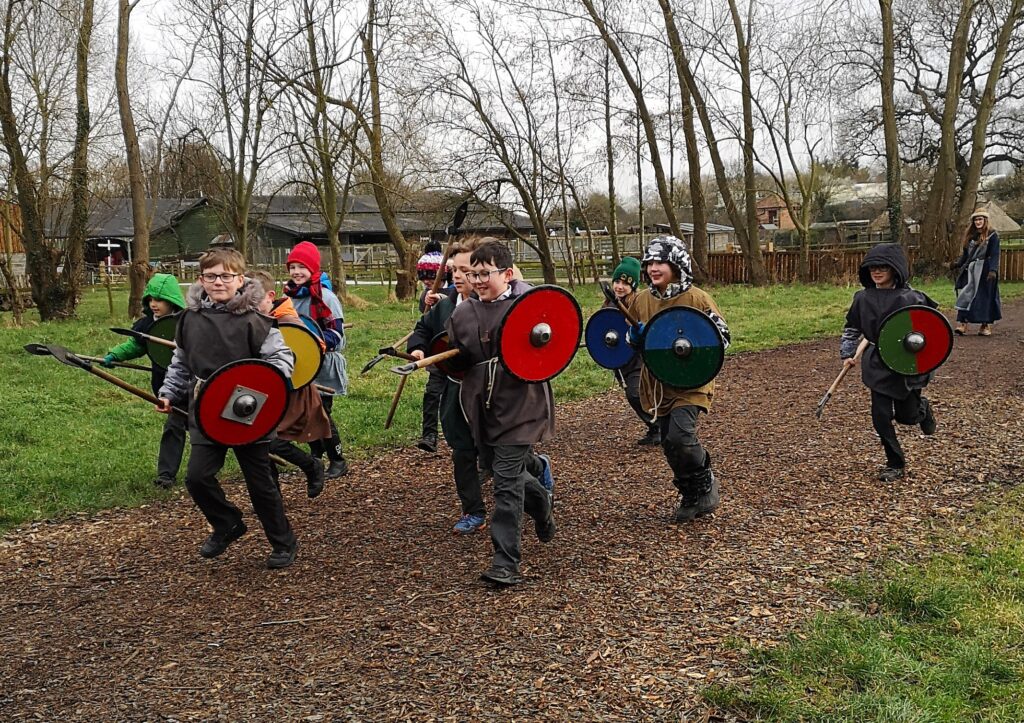- Art & Design
- Computing
- Design & Technology
- Early Years Foundation Stage (EYFS)
- English
- French
- Geography
- History
- Mathematics
- Music
- Physical Education
- PSHE
- Religious Education
- Science
“A people without the knowledge of their past history, origin and culture is like a tree without roots”
Marcus Garvey
At Beverley Minster CE Primary School we intend for our children to have a rounded understanding of history by the time they leave our school. They need to be able to put historical events into context and order. They need to understand how and why events in the past have shaped the modern world and our place within it. And they need to have had first hand experiences of ‘meeting’ significant places, objects and artefacts (be that through visits to various historical places, trips to museums and galleries or in-school workshops with experts), so that history can come to life for them. In order to do all of that, our children need access to a rich, carefully structured history curriculum.
Our intent is that our teaching of history will help pupils gain a coherent knowledge and understanding of Britain’s past and that of the wider world to build respect, appreciation, and pride for their country and its rich heritage. We follow the National Curriculum with the aim for it to inspire pupils’ curiosity about the past to develop their understanding of key events. Children will ask perceptive questions, think critically, weigh evidence, sift arguments, and develop perspective and judgment. Through the teaching of history we endeavour to teach pupils to understand the complexity of people’s lives, including those of the present, the process of change, the diversity of societies and beliefs, whilst celebrating these differences.
History
In terms of the specific history curriculum, we want our children to be confident in the following areas: -
- The curriculum is designed with the intention that every pupil can reach their potential in history.
- Pupils will learn lessons from history to influence the decisions they make in their lives in the future, supporting the school’s overall focus on enabling them to become responsible citizens.
- High quality history lessons will inspire pupils to want to know more about the past and to think and act as historians, understanding their role in time.
- Teaching enables pupils to think like historians.
- Celebrate the cultural capital intent above, pupils are taught history in an enriched and cross curricular approach, enabling progression of learning and skills.
- Throughout their journey, we are constantly developing a sense of historical order and ‘scale’ (the idea that history isn’t simply, ‘Iron Age, Bronze Age, Romans, Vikings, Normans, Tudors’ in equal steps)
- Teaching of events from more distant times that have had profound impacts on modern life, to support children in beginning to recognise why an understanding of history is so important.
- Moving through KS2, the teaching focus helps children build-up a picture of the early history of British Isles, from the Stone Age, Bronze Age and Iron Ages to 1066, via Roman rule, Anglo-Saxon settlement and Viking invasions.
- Alongside this, children also learn about events and changes in the world beyond our shores (including the Ancient Egyptians, Greeks and Mayans) and a key turning point in more modern history (the Battle of Britain).
- Through quality teaching we equip our children with the skills of questioning, inquiry, evaluation and interpretation needed to be a good historian.

Key Substantive concepts
- Invasion
- Hero / Heroine
- Chronology
Key Disciplinary concepts
- Construct & sequence the past
- Change and development
- Cause and effect
- Significance and interpretation
- Plan and carry out an enquiry
- Use sources of evidence
